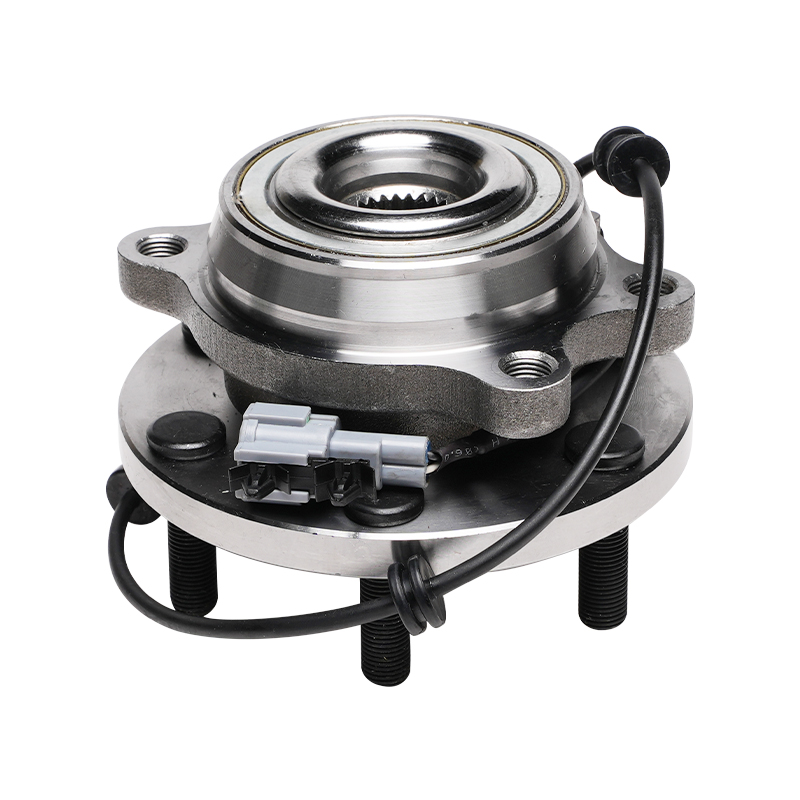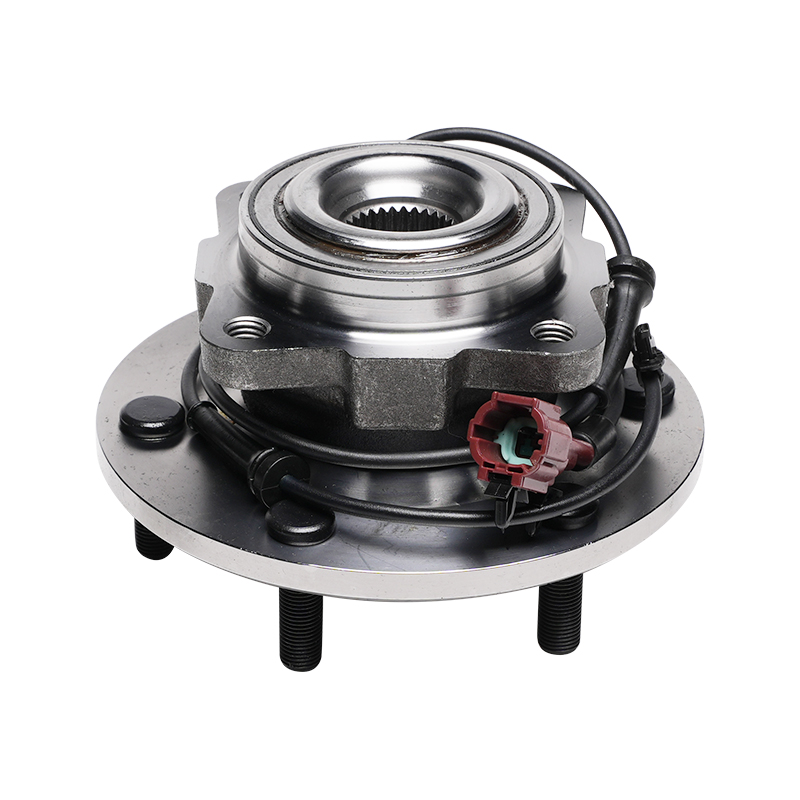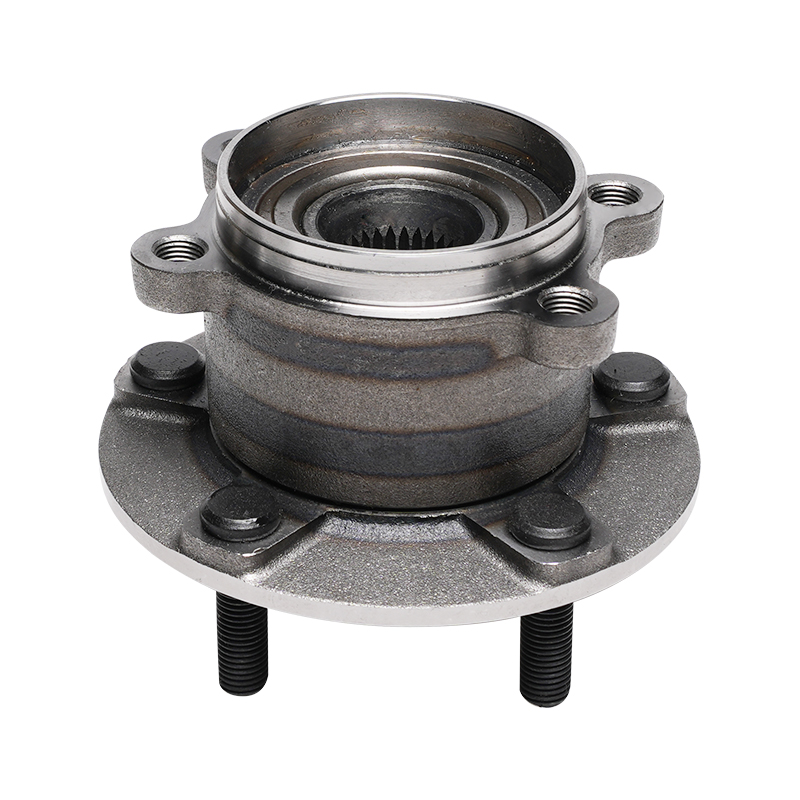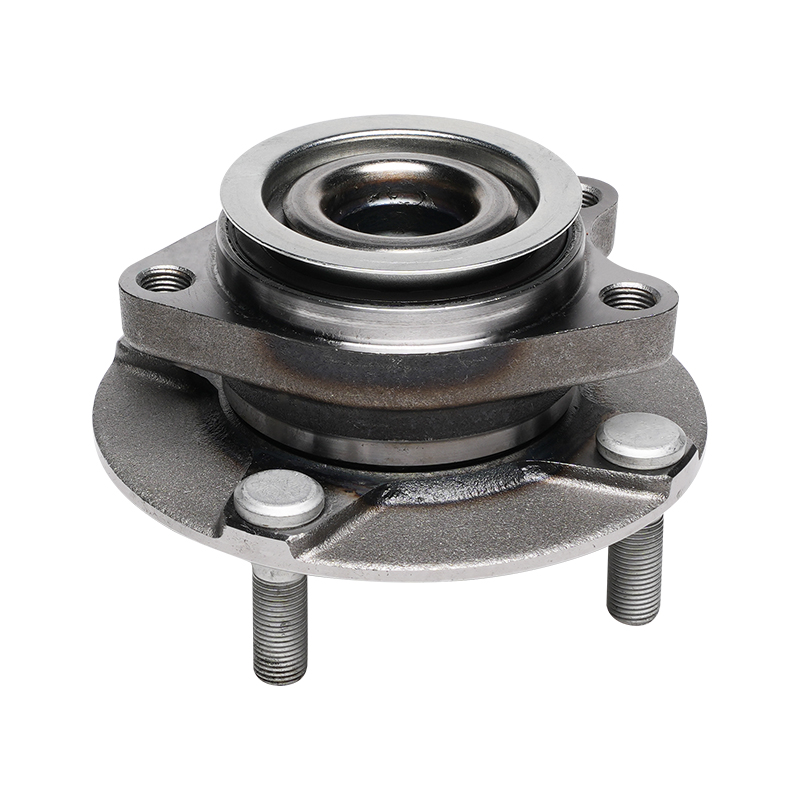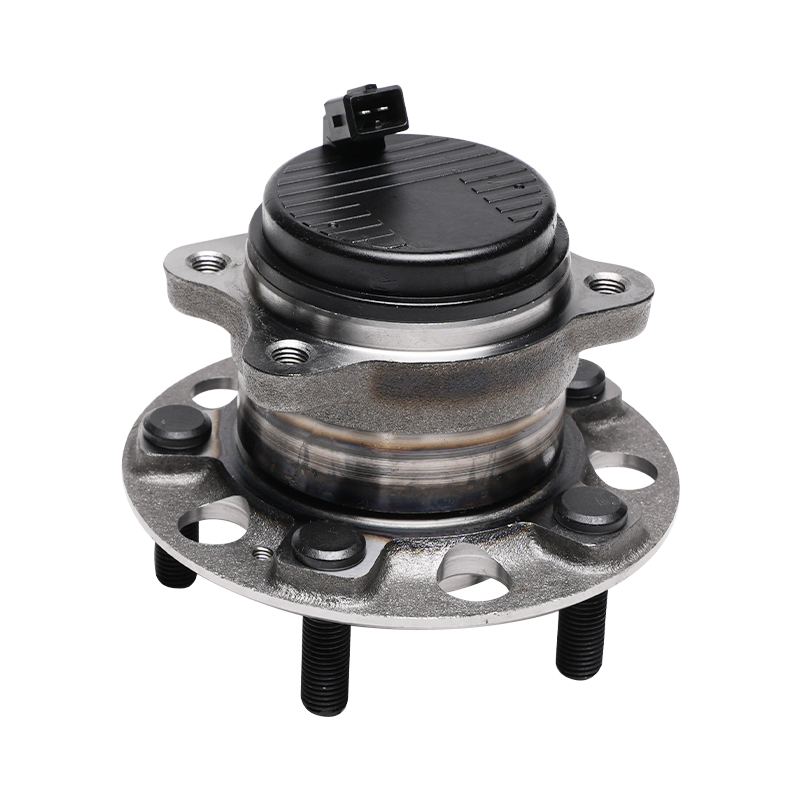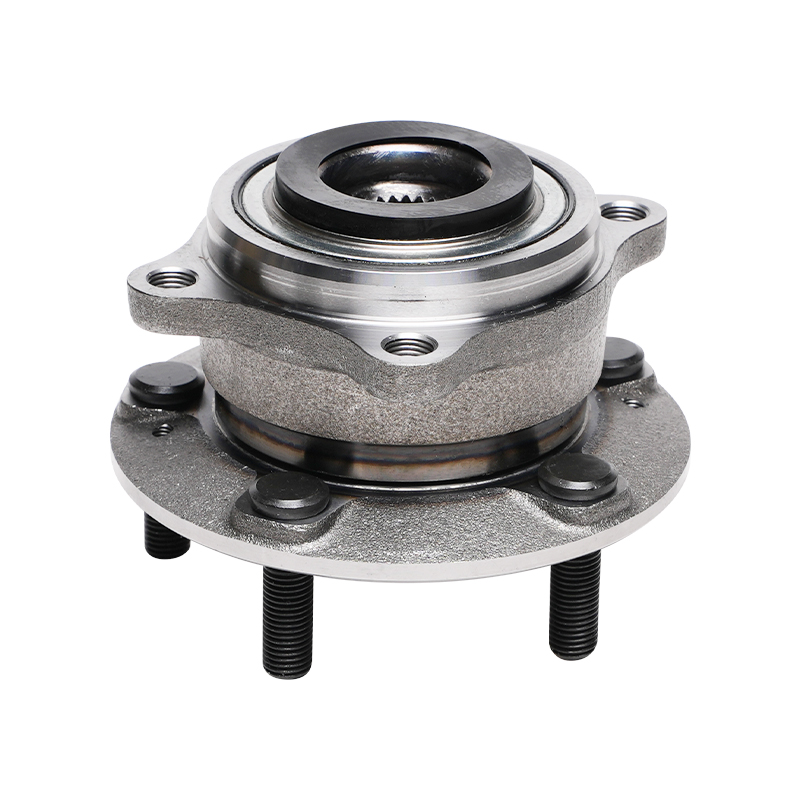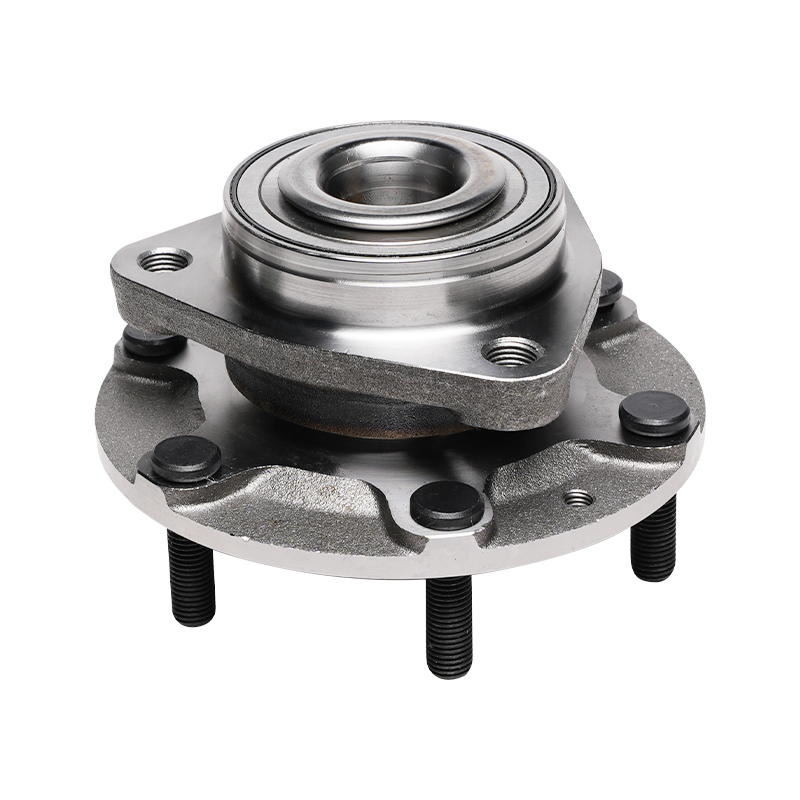Request for a call today
Wheel Hub Bearing Manufacturers: How to Choose a Professional Manufacturer and Guarantee the Quality of Core Automotive Components
 2025.09.08
2025.09.08
 Industry News
Industry News
In the automotive industry, wheel hub bearings are key transmission components connecting the wheels to the body. They shoulder the crucial mission of bearing the vehicle's weight, transmitting driving torque, and ensuring smooth wheel rotation. Their performance and quality directly determine the vehicle's driving safety, handling stability, and ride comfort. For automotive OEMs, aftermarket repair companies, and related industry chain practitioners, selecting a professional wheel hub bearing manufacturer is not only fundamental to ensuring product quality but also a key component in enhancing market competitiveness. However, with the current large number of wheel hub bearing manufacturers in the market and varying product quality, accurately identifying professional manufacturers and mitigating procurement risks has become a widespread concern within the industry.
The Core Technical Capabilities of Professional Wheel Hub Bearing Manufacturers
What distinguishes professional wheel hub bearing manufacturers from standard manufacturers is their deep accumulation of core technologies and comprehensive R&D systems. In terms of product design, professional manufacturers utilize advanced design tools such as 3D modeling and finite element analysis to optimize the internal structure of wheel hub bearings (such as rolling element type, cage structure, and sealing system) based on the load requirements, driving conditions, and power parameters of different vehicle models. This ensures that the product meets high industry standards in terms of load capacity, rotational accuracy, and wear resistance. For example, in the design of the sealing system, professional manufacturers employ a multi-layer lip seal structure combined with a specially formulated sealant to effectively block impurities such as dust, mud, and water from entering the bearing while preventing grease leakage, significantly extending the bearing's service life.

In terms of material selection, professional manufacturers strictly control the core materials of wheel hub bearings. The inner and outer rings and rolling elements of wheel hub bearings are typically made of high-purity bearing steel. This steel undergoes specialized smelting processes and heat treatments (such as carburizing, quenching, and tempering) to achieve excellent hardness, toughness, and fatigue strength. This ensures that the bearings are less susceptible to failures such as cracking and spalling under long-term high-speed rotation and alternating loads. For cages, professional manufacturers choose materials such as engineering plastics (such as nylon 66), brass, or stamped steel, depending on the specific application scenario. Engineering plastic cages offer advantages such as light weight, low friction coefficient, and strong corrosion resistance, making them a better fit for the lightweight and energy-efficient demands of modern vehicles.
Professional wheel hub bearing manufacturers also possess advanced production and processing technologies and sophisticated manufacturing equipment. During bearing processing, key processes such as inner and outer ring raceway grinding and rolling element superfinishing require high-precision CNC machining equipment to ensure that the product's dimensional accuracy, geometric tolerances, and surface finish meet design requirements. Furthermore, professional manufacturers incorporate automated production lines, automating the entire process from raw material processing and component assembly to finished product testing. This not only improves production efficiency but also effectively prevents human factors from impacting product quality.
Quality Control System of Professional Wheel Hub Bearing Manufacturers
Quality control is the lifeblood of professional wheel hub bearing manufacturers. A comprehensive and rigorous quality control system is key to ensuring stable and reliable product quality. Starting with incoming raw material inspection, professional manufacturers conduct comprehensive testing on purchased materials, including bearing steel, seals, and grease. This includes chemical composition analysis, mechanical property testing, and visual inspection. Only materials that meet these standards are allowed into production, eliminating quality risks at the source.
For quality control during the production process, professional manufacturers establish quality inspection points at key processes and employ advanced testing equipment (such as roundness testers, roughness testers, and flaw detectors) to conduct real-time inspections of component dimensional accuracy, surface quality, and internal defects. For example, ultrasonic flaw detectors are used to inspect bearing inner and outer rings for internal cracks, while magnetic particle flaw detectors are used to inspect rolling elements for surface defects, ensuring that every component meets quality standards. Professional manufacturers also establish a comprehensive production process traceability system, using batch numbering to track each product from raw material procurement, production, and processing to finished product shipment. This allows for rapid identification of any quality issues and prompt corrective action.
Finished product testing is the final line of defense in quality control. Professional wheel hub bearing manufacturers conduct comprehensive performance and reliability tests on finished wheel hub bearings. Performance testing includes rotational accuracy, radial clearance, sealing, and friction torque testing to ensure that all product performance indicators meet design requirements and industry standards. Reliability testing simulates various driving conditions, such as high and low temperatures, humidity, and vibration, subjecting wheel hub bearings to long-term life and durability testing to verify their service life and performance stability in harsh environments. Only finished products that pass all testing procedures are released for sale, ensuring high-quality products for customers.

How to Identify a High-Quality Wheel Hub Bearing Manufacturer and Avoid Procurement Risks
When selecting a wheel hub bearing manufacturer, buyers need to consider multiple aspects to assess the manufacturer's expertise and product quality. Pay attention to the manufacturer's industry qualifications and certifications. Professional wheel hub bearing manufacturers typically hold ISO/TS 16949 automotive quality management system certification, a key certification in the automotive parts industry, signifying that their quality management systems adhere to international standards. Some manufacturers also hold OE (Original Equipment) certification, enabling them to supply to automotive OEMs. Such manufacturers are generally more reliable in terms of technical expertise and quality control.
Examine the manufacturer's technological R&D capabilities and innovation strength. You can assess a manufacturer's technological R&D level by understanding the size of its R&D team, the proportion of its R&D investment, and its patent applications. Professional manufacturers continuously invest in R&D resources and continuously launch new products that meet market demand, such as lightweight wheel hub bearings, high-speed wheel hub bearings, and wheel hub bearings specifically designed for new energy vehicles, to meet the technological trends of modern automobiles. Furthermore, a manufacturer's ability to provide customized solutions is a key criterion for evaluating its technical strength. The ability to design and develop wheel hub bearings tailored to specific customer needs demonstrates the manufacturer's technical flexibility and expertise.
Amid the rapid development of the automotive industry, the importance of wheel hub bearings is becoming increasingly prominent. Selecting a professional wheel hub bearing manufacturer is crucial for ensuring vehicle safety and enhancing product competitiveness. When selecting a manufacturer, buyers should focus on its core technical capabilities, quality control system, industry qualifications, and after-sales service. Comprehensively assessing the manufacturer's capabilities can help avoid blindly purchasing, thereby establishing long-term partnerships with high-quality manufacturers and jointly promoting high-quality development of the automotive industry chain.

